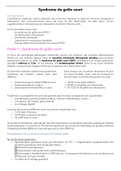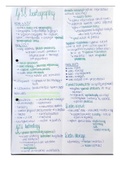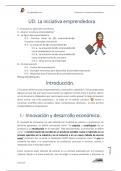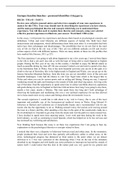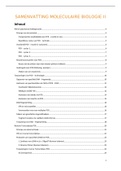Exam (elaborations)
hsy2603 exam 2021
- Institution
- University Of South Africa (Unisa)
Written,researched and documented by a final year student who received exceptional marks and obtained her degree at the end of 2021. Each one of my work has been citied with the relevant resources and information needed to complete your assignment and/or exam.
[Show more]




